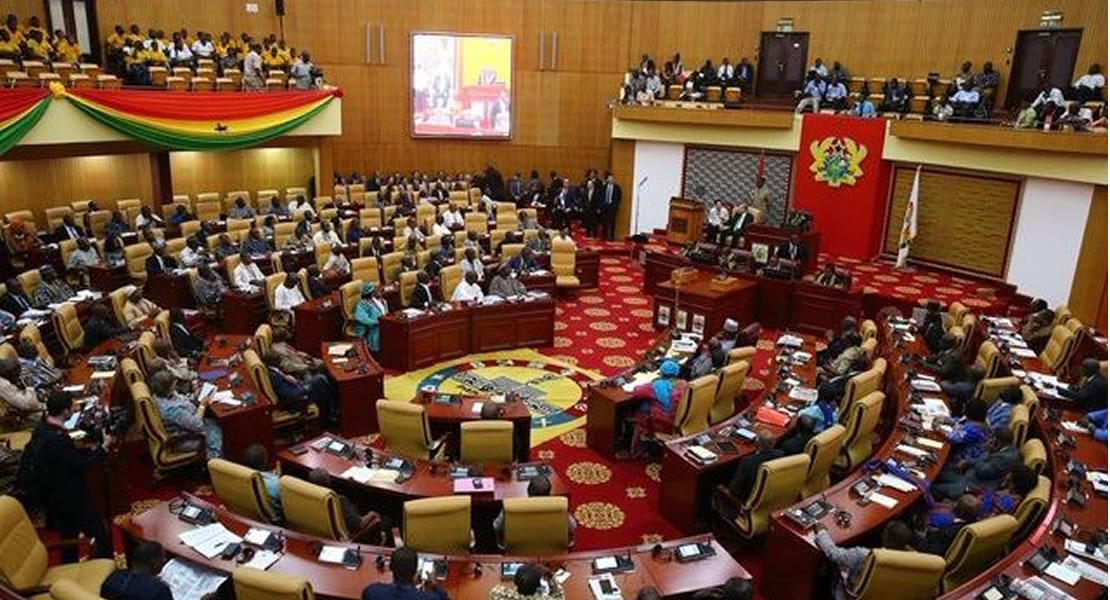
The Private Universities Students’ Association of Ghana (PUSAG) is calling on parliament to vote out the Plant Breeders Bill, since it is yet to be passed.
According to them, the passage of the bill is a detriment to the country’s national development because it would “finally surrender our economy in the hands of these multinational companies.”
In a statement issued by PUSAG, they questioned why government wants to agree to the passing of the bill because it would allow the importation and exportation of genetically modified seeds.
“Numerous countries all over the world are resisting GMO foods, to the very recent, South Sudan. So what is causing the government of Ghana to agree to jeopardize the fortunes of this country by approving the plant breeder’s bill to adopt GMO foods?” they asked.
They also mentioned that because GM seeds are contract barring seeds; farmers will not be able to replant from the same seeds and would have to continue buying from the seed companies which “would cause more hardship to our farmers and also cause the devaluation of our cedi.”
They also revealed that Health wise, GMO foods have been associated with the cause of strange diseases, birth defects and cancers of all kinds in countries that are consuming GM foods.
Below is the full statement from PUSAG
PARLIAMENT MUST VOTE OUT THE PLANT BREEDERS BILL AND REJECT THE BIO-SAFETY ACT
The Private Universities Students’ Association of Ghana (PUSAG) is calling on parliament to vote out the Plant Breeders Bill, and it is cautioning the good people of Ghana to reject any attempt to adopt Genetically Modified Organisms (GMO) foods, which would be propagated in the unlikelihood event of parliament approving the bill.
The parliament of Ghana had since the year 2011 passed the Bio-Safety Act 831.
This Act is to ensure the establishment of a National Bio-Safety Authority – an administrative body that will oversee to the administration of genetically modified organisms resulting from biotechnology, which includes GM foods in this country.
The Plant Breeders Bill is yet to be passed by parliament, and it passage would allow the importation and exportation of genetically engineered or genetically modified seeds.
Hitherto, Ghana is not producing genetically modified seeds. However, these plant variety GM seeds are licensed properties of multinational chemical and food companies such as Monsanto, Bayer Cropscience, Dow Agroscience etc.
The passage of the bill is a detriment to our national development and it would finally surrender our economy in the hands of these multinational companies.
Agriculture is the backbone of Ghana’s economic development. Section 23 of the bill states that, “a plant breeder right shall be independent of any measure taken by the Republic within Ghana the production, certification and marketing of a variety or the importation or exportation of the material”.
This implies that, the government of Ghana does not have any right to regulate the activity of companies’ in charge in the importation of GM seeds. Assenting to the plant breeders’ bill is closely associated with the Bond of 1844, paving up for neo-colonialism.
Numerous countries all over the world are resisting GMO foods, to the very recent, South Sudan. So what is causing the government of Ghana to agree to jeopardize the fortunes of this country by approving the plant breeder’s bill to adopt GMO foods? GM seeds are contract barring seeds, this means that farmers cannot replant from the same seeds they have used but would have to continue to buy from the seed companies.
This by far would cause more hardship to our farmers and also cause the devaluation of our cedi.
Health wise, GMO foods have been associated with the cause of strange diseases, birth defects and cancers of all kinds in countries that are consuming GM foods.
Early on, the Ministry of Health, Ghana Health Service, the Catholic Bishop Conference, the Food Sovereignty Ghana and the Convention Peoples’ Party have called on government to reject the plant breeders’ bill and GM foods. PUSAG in the spirit of solidarity and partners in national development is joining them to cause government to heed to these calls.
Generally, what we need is an agricultural ministry which supports farmers through training, loans, supervision, education, equipment construction of more roads to our farming communities and so on.
SIGNED
Benjamin Panlogo-Logodam (National President)
Raphael Apetorgbor (National Media Relations Officer)